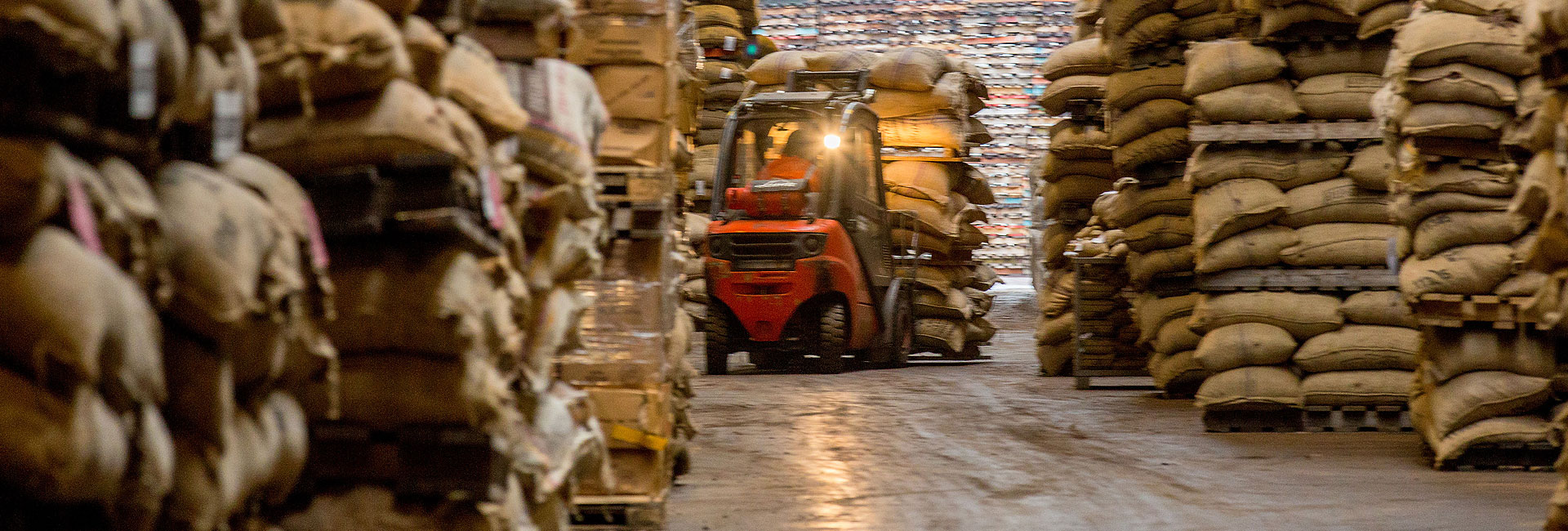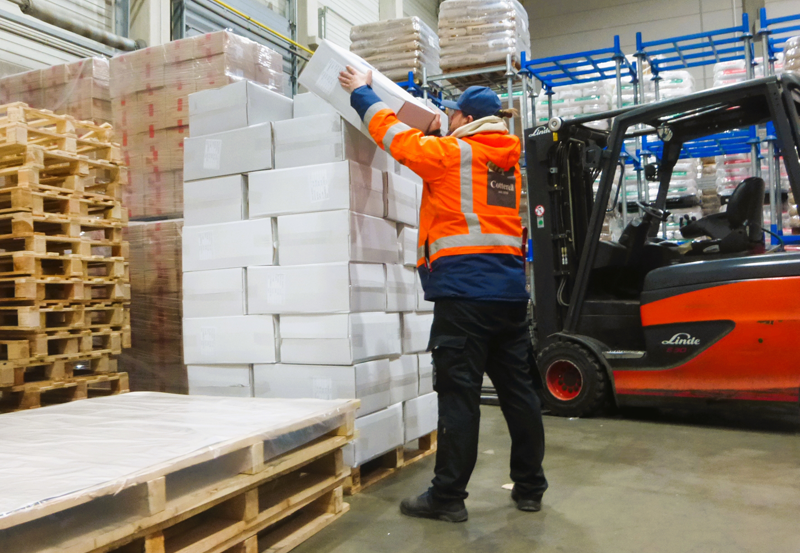Rail port working world
Hamburg is Europe’s top rail port. Hamburg port railway operates a rail network extending approximately 300 kilometres, enabling goods from all over the ...

For over 130 years, H.D. Cotterell has been a family-run logistics company specializing in accepting and storing cocoa beans, semi-finished cocoa products, along with dried fruits, spices, coffee, and much else. Across around 100,000 square metres of warehousing in the Port of Hamburg, some 60 staff ensure smooth handling processes for these special crops. The company is made up of industrially and commercially trained occupational groups. Two vocational training places are annually awarded in each.
Apart from the commercial side headed by Matthias Thomsen, H.D. Cotterell also trains port logistics specialists. Learning every step in freight handling during training, such apprentices become true port all-rounders. They are in different warehouses every day, learning to organize both putting goods into storage there, also organizing delivery. This involves checking quantity, quality and the match with accompanying documents. During training, trainees learn about a host of products and their properties: how these smell and feel, and what special factors are involved in dealing with them. For instance, how are pallets optimally loaded with bags, cartons, etc, so that these can be stacked or loaded and remain stable? Trainees also learn how to properly handle such working tools as forklifts, weighing machines, sample stabbers, etc.. Trainees work mainly outdoors and their daily tasks will also be strenuous. In short, they learn what makes a normal day in a port operation, and how products are handled in a warehouse.

The working day can be described as follows: Warehouse management first appoints the working teams for the day and distributes the everyday jobs. Then the team checks whether all the essential working tools for doing these are available, and moves off to the warehouse. Trucks or containers are received there. Data is compared with the papers, goods received or despatched, and at the same time checked. In the event of discrepancies or damage, the office is contacted. Again and again, customers call for samples and these have to be taken during operations. Or an additional truck reached the warehouse that needs to be loaded at short notice. To ensure that processes run smoothly, in this job it is important that grips and holds practiced daily during training are accomplished safely. We serve an international clientele that trusts H.D. Cotterell to determine product quality and if necessary to act to preserve value. The experts there are trained port logistics specialists.
Training of an expert in this field is intended for applicants wishing to experience the momentum of the port, happy to work in the fresh air and not bothered by rising early. Good knowledge of German is also essential for daily communication with colleagues and truckers. A good grasp of figures and quantities is also desirable. At least GCSE-level qualifications are required for training as a port logistics specialist.
“My name is Matthias Thomsen, I am a forwarding manager and the vocational trainer for the commercial side of H. D. Cotterell. I completed my training with the company long ago, having gathered experience here as a forwarder for 35 years. I am daily concerned with the storage of various different produce.
On the one hand, I ask the customers for the required documents, award contracts to forwarders, check up on the space required for storage and the Customs regulations. After storage, I record the quantities and the condition of the produce for the customers and in our inventory control system. On the other, I organize collection and prepare the relevant papers – delivery note, Customs declaration, etc. Once these steps are completed, invoices are prepared. We provide vocational training to enable future staff to learn the basics of how we see ourselves and what makes our work special. We operate right alongside the produce and are not simply forwarders. We are knowledgeable on its special characteristics such as cocoa and dried fruits and how these must be correctly treated. We make our way to warehouses as merchants to inspect the produce there for ourselves. Spending time there forms part of a training plan designed to impart understanding of logistics in practice. That subsequently helps planning and organization of storage processes, so that everything functions as swiftly and problem-free as possible.
We are pleased when the atmosphere of the Port of Hamburg appeals to the new generation and candidates are able to identify with our family business. As their trainer, I am available at all times to answer queries and provide help. Every day produces fresh challenges. Trainees rapidly learn to tackle fresh tasks on their own initiative, to develop ideas of their own. That’s what makes the job fascinating. So I can only advise new trainees not to defer what they need to do, since who knows how many orders will need to be dealt with in the team next day? Precision is of supreme importance: A figure reversed or a typing error in vital documents or in the inventory can have serious repercussions and cause high follow-up costs.
„Spending time at
the warehouse forms
part of a training
plan designed to
impart understanding
of logistics in practice."
In the past, orders were placed and received by post, telex or fax. Processes required more time, so that smaller quantities were imported and exported. Thanks to digitalization, nowadays processes can be depicted far more rapidly. Our throughput is several times higher than it was twenty years ago. All essential data on separate moves and customers is stored in the computer. Work commissions can be produced automatically. This makes working processes distinctly leaner and more transparent, while also involving a different occupational profile for trainees. In addition to the dual education, we now also offer the trimodal program. Along with vocational training, at AHV – Hamburg Transport Academy – trainees may study for a BA in logistics.”